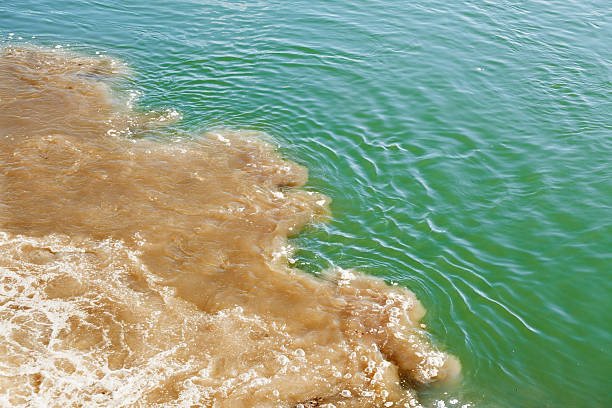Grade 12 Geography Hypothesis Examples based on South African Topics:
A hypothesis is a proposed explanation or assumption for a specific phenomenon, event, or observation that can be tested through scientific investigation. It is a key component of the scientific method, as it provides a basis for researchers to design experiments, collect data, and ultimately confirm or refute the hypothesis.
Relevant terminologies related to a hypothesis:
- Null hypothesis (H0): A statement that suggests there is no significant relationship between the variables being studied or that the observed effect is due to chance alone. The null hypothesis is often tested against an alternative hypothesis.
- Alternative hypothesis (H1 or Ha): A statement that contradicts the null hypothesis, asserting that there is a significant relationship between the variables or that the observed effect is not due to chance alone.
- Dependent variable: The variable being studied or measured in an experiment, often considered the “outcome” or “response” variable. It is dependent on the independent variable(s).
- Independent variable: The variable that is manipulated or controlled by the researcher in an experiment to study its effect on the dependent variable.
- Control group: A group in an experiment that does not receive the treatment or manipulation of the independent variable. The control group serves as a baseline for comparison with the experimental group.
- Experimental group: A group in an experiment that receives the treatment or manipulation of the independent variable.
- Confounding variable: A variable that may influence the relationship between the independent and dependent variables, potentially leading to incorrect conclusions.
- Internal validity: The degree to which the results of a study can be attributed to the manipulation of the independent variable rather than the influence of confounding variables.
- External validity: The degree to which the results of a study can be generalized to other populations, settings, or conditions.
- Statistical significance: A measure of the likelihood that the observed relationship between variables is due to chance alone. A statistically significant result indicates that there is strong evidence to reject the null hypothesis in favor of the alternative hypothesis.
- P-value: A probability value used to determine the statistical significance of a result. A smaller p-value (typically less than 0.05) indicates stronger evidence against the null hypothesis.
Grade 12 Geography Hypothesis Examples based on South African Topics
Here are possible hypothesis examples based on South African geography topics:
- Hypothesis: The severity and frequency of droughts in South Africa will increase due to climate change.
- This hypothesis could be investigated by analyzing historical drought data and comparing it to climate projections for the region. Researchers could also look at the impacts of droughts on agriculture, water availability, and socio-economic factors in different parts of the country.
- Hypothesis: The development of renewable energy infrastructure in South Africa will reduce the country’s dependence on fossil fuels and lead to a reduction in greenhouse gas emissions.
- This hypothesis could be investigated by examining trends in energy production and consumption, as well as government policies and incentives related to renewable energy. Researchers could also analyze the environmental and economic impacts of transitioning to renewable energy sources in different parts of the country.
- Hypothesis: Urbanization in South Africa is contributing to increased air pollution levels and negative health impacts.
- This hypothesis could be investigated by measuring air pollution levels in different urban areas and comparing them to national and international standards. Researchers could also examine the health impacts of air pollution on different demographic groups and assess the effectiveness of existing policies and interventions aimed at reducing air pollution.
- Hypothesis: Mining activities in South Africa are causing significant environmental degradation and negative impacts on local communities.
- This hypothesis could be investigated by analyzing the environmental impacts of different mining practices, such as open pit mining and deep level mining, and assessing the effectiveness of regulatory frameworks in mitigating these impacts. Researchers could also investigate the social and economic impacts of mining on local communities, including displacement, loss of livelihoods, and health impacts.
- Hypothesis: Climate change is exacerbating water scarcity in South Africa, particularly in regions with high levels of population growth and agricultural activity.
- This hypothesis could be investigated by analyzing historical rainfall data and assessing the impacts of changing rainfall patterns on water availability in different regions. Researchers could also examine the effectiveness of water management strategies, such as water conservation measures and investments in infrastructure, in mitigating the impacts of water scarcity on agriculture, industry, and domestic use.
- Hypothesis: Tourism development in South Africa is leading to environmental degradation and cultural commodification in some areas.
- This hypothesis could be investigated by analyzing the impacts of tourism development on local ecosystems, including wildlife and biodiversity, and assessing the effectiveness of existing policies and regulations in protecting these areas. Researchers could also investigate the socio-cultural impacts of tourism on local communities, including changes in traditional ways of life and the commodification of cultural practices.
- Hypothesis: The use of non-renewable energy sources in South Africa is contributing to climate change and global warming.
- This hypothesis could be investigated by analyzing energy production and consumption trends in the country and comparing them to national and international targets for reducing greenhouse gas emissions. Researchers could also examine the environmental impacts of different energy sources, such as coal and natural gas, and assess the feasibility and effectiveness of transitioning to renewable energy sources.
- Hypothesis: Land use change in South Africa is leading to deforestation and biodiversity loss.
- This hypothesis could be investigated by analyzing the drivers of land use change, including agricultural expansion and urbanization, and assessing their impacts on forest cover and biodiversity. Researchers could also investigate the effectiveness of existing policies and regulations aimed at protecting forests and conserving biodiversity, and assess the potential for sustainable land use practices.
- Hypothesis: Coastal erosion in South Africa is increasing due to sea level rise and human activities.
- This hypothesis could be investigated by analyzing historical data on coastal erosion rates and assessing the impacts of sea level rise and human activities, such as coastal development and mining, on coastal ecosystems. Researchers could also investigate the effectiveness of existing coastal management strategies, including coastal protection measures and land use planning, in mitigating the impacts of coastal erosion.
These are just a few examples of possible geography hypotheses related to South Africa. Actual research would require detailed planning, data collection, and analysis.






